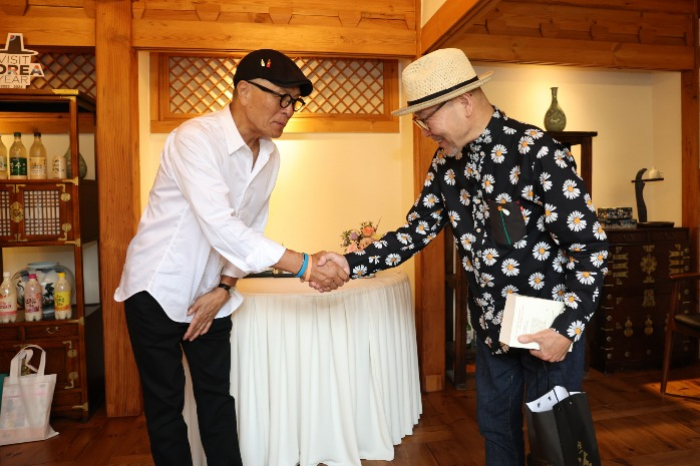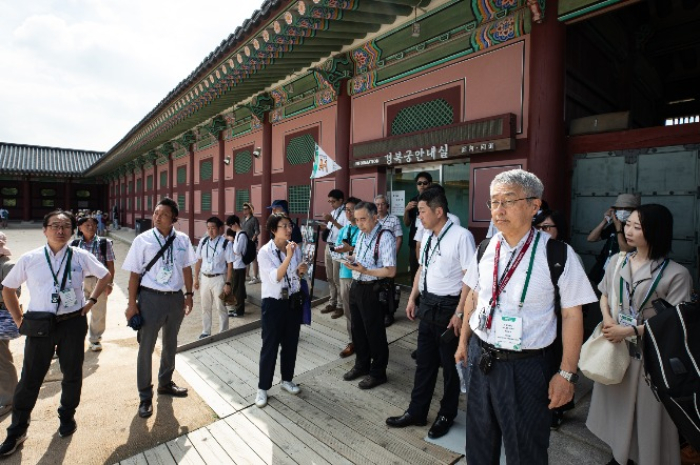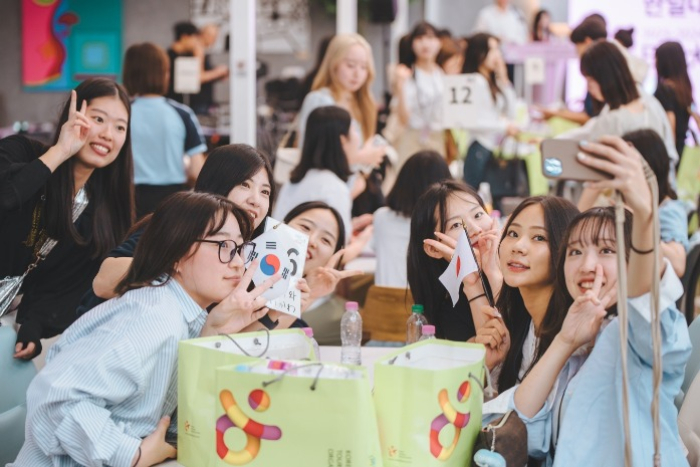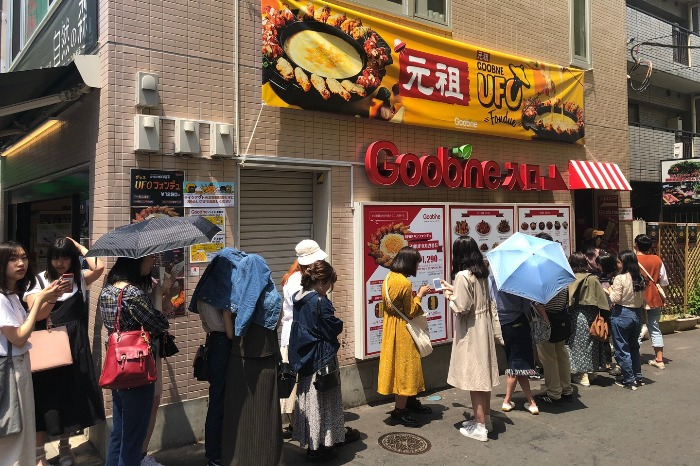Travel & Leisure
K-food behind Japanese travelers' rush to S.Korea
Japanese tourists have visited Seoul the most this year, accounting for nearly 20% of foreign visitors
By Sep 19, 2023 (Gmt+09:00)
4
Min read
Most Read
LG Chem to sell water filter business to Glenwood PE for $692 million


Kyobo Life poised to buy Japan’s SBI Group-owned savings bank


KT&G eyes overseas M&A after rejecting activist fund's offer


StockX in merger talks with Naver’s online reseller Kream


Mirae Asset to be named Korea Post’s core real estate fund operator



South Korea is actively promoting itself as a foodies’ heaven to invite more Japanese tourists who have already contributed the most to the country’s tourism this year.
Celebrated Japanese writer Masayuki Kusumi, the author of The Solitary Gourmet, visited Korea for two days last week to film his tours of hidden gems on Seoul’s tasty road map – mainly in old downtown districts covering Seochon Village, Samcheong-dong and Uljiro chock full of history and hip hotspots.
His Seoul trip was made upon invitation by Korea’s Ministry of Culture, Sports and Tourism, which also arranged his meeting with Huh Young-man, Korea’s beloved comic book artist, gourmet and food expert who wrote Sikgaek, translated as The Gourmet, who explores the expansive realm of Korean gastronomy.
The Korean government will produce a series of short videos about the Japanese writer’s recent Seoul gourmet adventures to lure more Japanese tourists to Korea, especially male visitors from the neighboring country.
MOST POPULAR DESTINATION FOR JAPANESE TRAVELERS
Seoul, the capital of Korea, was the most popular foreign destination for Japanese travelers this summer, according to a survey by HIS, a major tour group in Japan, in July. Korea’s second-biggest city Busan ranked the 7th popular destination.

Data from the Korea Tourism Organization (KTO) also backed the survey, which showed Japan was the No. 1 contributor to Korean tourism this year.
According to the KTO data, 1.07 million Japanese travelers visited Korea from January to July this year, accounting for the largest 19.7% of the total foreign visitors to the country.
Over the same period, Korea received 771,198 Chinese travelers, 618,688 from the US and 505,723 from Taiwan.
It was the first time that Japanese travelers made up the biggest share of the total foreign tourists to Korea since the same period in 2012.
Given the weakening Japanese currency against a basket of major foreign currencies including the Korean won, the jump in Japanese visitors to Korea this year is an encouraging sign for the Korean tourism industry.
The Japanese yen averaged at 9.47 per won from January to mid-September, the weakest since 2015 when it averaged at 9.35.

Japanese women in their 20s and 30s led the growth in the total number of travelers from the neighboring country. Female visitors accounted for 66.2%, with those in their 20s and 30s representing 27.0% and 9.1%, respectively.
Their visit to Seoul has recently spiked amid the fourth wave of a Korean culture boom in Japan driven by the revived popularity of Korean movies and TV shows available on the over-the-top streaming services among the Millennials (born in the early 1980s to early 1990s) and Generation Z (born in the mid-1990s to early 2000s) in the country.
But over the same period, Japanese men in their 20s and 30s made up respectively 7.2% and 5.2% of the total Japanese tourists to Korea, suggesting there is room to entice their appetite for trips to Korea.
K-FOOD, NEXT BIG THING TO ENTICE INTEREST
This was one of the reasons that the Korean tourism ministry invited The Solitary Gourmet writer to Seoul last week.
The TV drama adaptation of The Solitary Gourmet was a smash hit in Japan, especially among male viewers accounting for 70% of the program’s entire audiences.
And Korean food was the No. 1 reason to visit Korea among Japanese people, taking the largest 18.5% of the total responses to KTO’s survey on reasons for Japanese travelers’ visit to Korea in April.

Visiting famous and highly-rated eateries in Korea was also the No. 1 activity the survey respondents wished to do with 64.1%, followed by shopping 62.8% and visiting historic sites 37.9%.
Masayuki will introduce Korean foods and restaurants in a series of videos produced by the Korean culture ministry under the titles of Salaryman’s Gourmet Restaurants and Solo Drinker's Gourmet Restaurants in hopes of enticing the interest of Japanese men in Korean trips.
The Korean government also plans to publish a special Korean tour guidebook on Korean foods and dine-out places that are especially sought after by male patrons later this year.
The government is striving to make hay while the sun shines.
“A long line of Japanese youths waiting to buy Korean hotteok and hot dog is now a common scene in Tokyo’s Shin Okubo,” Masayuki said during his meeting with Korean writer Huh.
Shin Okubo is the Korean Town near Shinjuku, Tokyo, and sweet syrup-filled pancake hotteok and hot dog, or corn dog, are popular Korean street foods.
“Young Japanese people’s love for Korean food leads to their travels to Korea.”
Write to Young Chan Song at 0full@hankyung.com
Sookyung Seo edited this article.
More to Read
-

-
 Foreign exchangeYen breaches key level vs Korean won to hit 8-year low
Foreign exchangeYen breaches key level vs Korean won to hit 8-year lowJun 19, 2023 (Gmt+09:00)
1 Min read -
 Travel & LeisureJapanese travelers top list of reservations to visit Seoul during BTS Festa
Travel & LeisureJapanese travelers top list of reservations to visit Seoul during BTS FestaJun 14, 2023 (Gmt+09:00)
1 Min read -
 Travel & LeisureSeoul reclaims spot as Japanese tourists' top destination after 11 yrs: HIS
Travel & LeisureSeoul reclaims spot as Japanese tourists' top destination after 11 yrs: HISNov 28, 2022 (Gmt+09:00)
1 Min read
Comment 0
LOG IN


